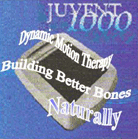
A dressing room in Salthill, and while the field they're about to hit is wet and cold, inside Mickey Harte is stoking up a fire. It's the fourth anniversary of Cormac McAnallen's passing and before they go out, there's something he has to let out. In front of him isn't so much a team as two teams. One has won All Irelands at every level. The other is mostly fellas who won one at minor a while ago. How long more will it take fellas to step up, to buck up?
"You minors from 2001. What age are you boys now, 25? Cormac McAnallen was captain of Tyrone at 23. He didn't wait to be an old man to be a leader, to make a difference. When are you going to make a difference? Sean Cavanagh did a long time ago. Why is he the only one to leave his own mark? Are you going to continue to honker in behind the big names we have here or are you ready to take the next step?"
He's not saying it but he's thinking of someone like Joe McMahon. Mister Cool Laidback Joe. He knows Joe means no harm by it but there's another level in him. His brother Justin too. He's only 23, but Cormac was 23 when he played full-back in an All Ireland. Tommy McGuigan; he's 25, yet to start a second championship game. Brian had won a second All Ireland at 25. He could go through them all. Even the seasoned winners, especially the seasoned winners. They've won a lot, been through a lot. Deep down are they leaning on all those victories and setbacks? Have they lost the edge? Got stuck in some comfort zone?
Harsh questions but legitimate ones. A few months earlier Harte had asked himself the same. And the scary thing was, the answer each time was 'Yes'.
• • •
Last year was a strange one. It was a transitional year, with the side still getting over the injuries that had plagued them, and in many ways a decent one too. They won Ulster, only their second under Harte. At times Harte has wondered did Tyrone get enough credit for that Ulster. Indeed, at times like the Irish News and Vodafone All Stars, he wondered if they had won it all, and that in fact the Anglo-Celt was the possession of Monaghan.
But maybe that was part of the problem. While others didn't give Tyrone enough credit for that achievement, maybe Tyrone themselves put too much store in it. In Croke Park Meath had exploited and exposed that softness.
"There was something lacking within the team last season. You think you're doing things as well as you ever did but in reality you're just doing them routinely, without complete energy. Subconsciously we were sort of semi-content in doing alright. And I'm never going to say that was just in the players' domain. Maybe we [in management] sat back and weren't creative or innovative enough about what we were doing and saying."
In 2003 he had left nothing to chance. He prided himself in giving players a voice, hearing their thoughts, fears, ideas. He became football's most articulate and prominent champion of the athlete-centred approach, believing that if players were to make good decisions on the field, they needed to be allowed make good ones off it. But through the years, he hadn't adequately cultivated that ethos. One to one, he wasn't communicating with players well or often enough.
Martin Penrose, another of the minors of 2001, was a case in point. In Penrose Harte saw visions of another Tommy Freeman, not just a fast forward handy for a few league games and 20 minutes every second championship match. But Penrose never knew this. Harte had never communicated this. When he finally secured a heart-to-heart with Harte at the start of the year, Penrose revealed he was on the verge of quitting the panel.
"Sometimes," says Harte, "you can deceive yourself. You assume the player knows what you think of him, how you feel about them. That was a discovery for me – to realise I was playing too many films in my own head and not sharing those films with the player.
"When I told Martin he could be as effective as Freeman, you could see a light go on. It totally changed his outlook. He's now a better finisher, better team player, a real tackling forward. I would now be far more conscious of speaking to players on a more ongoing basis, even if it's only 30 seconds on the training ground. In other years I'd have passed on those opportunities, not fully appreciating those 30 seconds could mean a lifetime of value to them. Like everything and everyone else, I had to learn along the way too."
• • •
They lost that league game in Salthill but there had been a spark, a performance there. Newry was the same. There was a real hurt that they had lost yet a certain pride in how they had lost. Tyrone had been exiting championships quite passively – Donegal and Mayo in 2004, Derry and Laois in 2006, Meath last year. In Newry there had been a spirit of defiance. With six minutes left, they had been trailing 16 points to 12. In other years that would have become 18-12. They made it 16-16. Then they made it 20-16 to Tyrone early into extra-time. Down would respond with a couple of points and a Benny Coulter goal to shade a classic but Ross Carr wasn't the only manager leaving Newry that night sensing Tyrone would be playing well into August. "It was our sweetest defeat," says Harte, "if you can have such a thing."
It was a convenient defeat, if you can have such a thing too. The Sunday Down faced Armagh in the Ulster semi-final Tyrone held a training session and only 17 of the panel's 32 players were fit to take part. There's no way they would have withstood the might of Armagh, and very questionable whether the side's morale could have withstood an emphatic defeat to such a prominent rival. Newry had been good for them, not the end of them.
It's not how others saw it. A barrage of anonymous posts into the Irish News and cyberspace claimed Harte was past it. Harte was unaffected. As much as he asked questions of himself in recent years he never doubted himself.
"There might be lots of people who will abuse you and forget you ever achieved anything but, sorry, I simply do not let them get near me. You'd hear people alright saying 'What happened to youse?' but you get that after every defeat. I actually got a number of calls from people I'd respect saying, 'Ye played really well, Down just played great, this team will still go far.' That was worth more than a thousand lines of criticism by faceless people I don't think should be in papers anyway. I hold dear that I will never put my self-esteem or well-being in the hands of another person, especially a faceless person unaware of the full picture."
Harte knew it. Players were returning from injury, others were growing, improving. Monday night is an off-night yet this summer there's always been nine or 10 players out on that training ground that night, mostly fringe players, under the helpful eye of Harte and trainer Fergal McCann. The Monday Club is like the Bearded Brothers; something organic and now, just part of what they are and do. Because they know Harte will be there in 2009 and 2010, they're out there with an eye to 2009 and 2010. Brian McGuigan would be one. And in recent weeks, Stephen O'Neill another.
The Tuesday after the Wexford game Harte got word O'Neill could be interested in resuming his county career. Harte asked his source to confirm the story's validity and when he was assured it was rock-solid, he phoned O'Neill to express his delight and invite him over to his house that night.
"Stevie was acutely aware of the timing and implications of his return, so much so that he was prepared to put it on hold until January. But I told him if he felt he wanted to be a Tyrone player again, the time was now. If it was half an hour before the All Ireland final and Stevie said he was going to resume his intercounty career I would have taken him in.
"I feel Stephen can make a contribution against Kerry. In no way has he been out of his depth, and some of those have been real tough sessions, especially his first one back. He's oozing the quality he always did, and that's encouraging not just for this game but for 2009 and beyond."
Harte had heard the rumour, of course. That they had worked in the estate agency business and fallen out over a deal in which O'Neill had got burnt. Harte dismisses it and smiles while he dismisses it.
"There was never an issue between us. Sometimes when people say something so much, you invariably think, 'Well, there must be something to it' but it's just not true. We happened to work for the same company, Martin Shortt Auctioneers. I was the contact that got him to work for Martin but Stephen worked in the mortgage department while I worked for Martin in a different capacity. I had no authority over Stephen in any shape or form. Stephen left the business because he wanted to go back teaching and for no other reason. There was no business difficulty whatsoever. We've never had anything but total respect for one another."
Funny, this day 11 years ago, the same day Darragh Ó Sé won his first senior All Ireland, a Mickey Harte indicated he'd be stepping down as county minor coach after seven years in the job. He had just taken a team to an All Ireland final, but he could take them no further. A 17-year-old Stephen O'Neill disagreed. The following night in the Glenavon Hotel he approached Harte. "One more year, Mickey, and we'll do it." And they did. Now 10 years on from that triumph and they're together for another tilt at an All Ireland.
Harte didn't go anywhere. He's going nowhere. It's what he does best. He's the best at it.
kshannon@tribune.ie




 del.icio.us
del.icio.us digg
digg Facebook
Facebook








Well done on winning the macth on Sunday :)